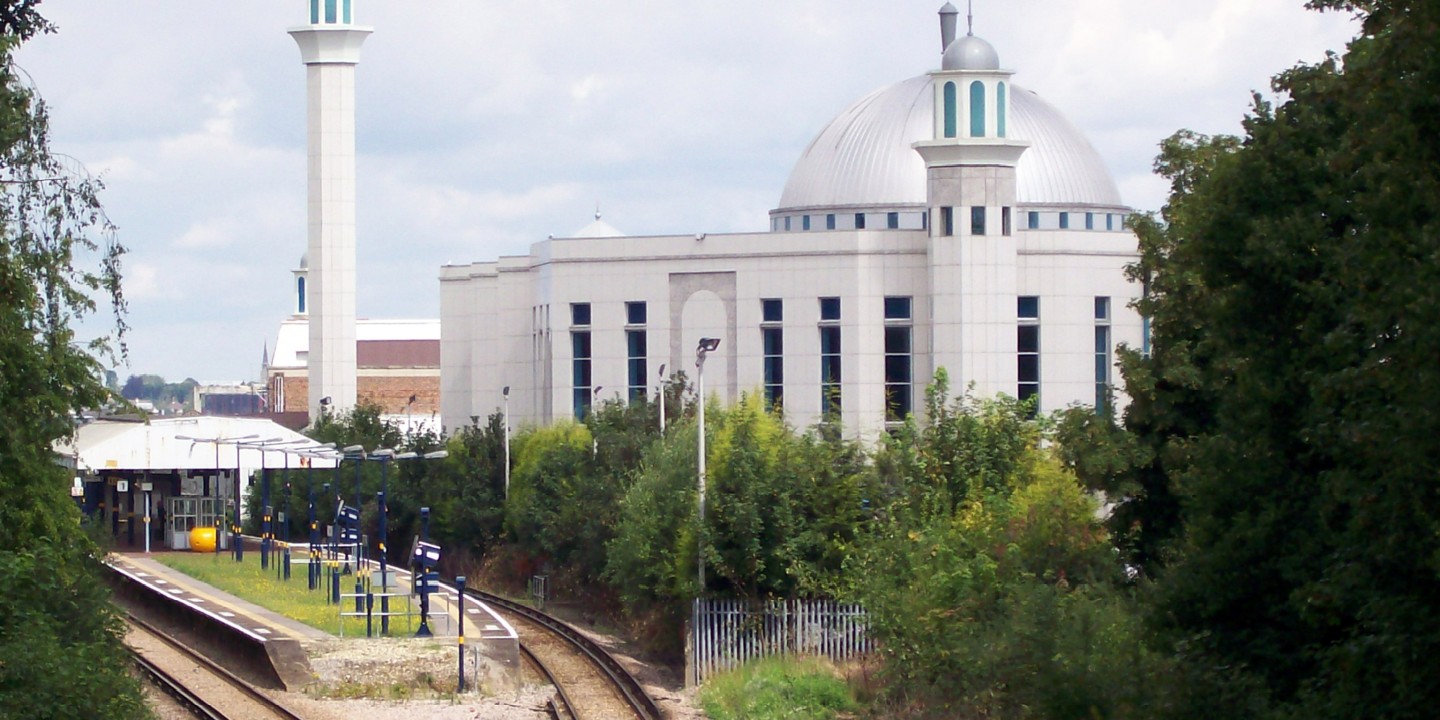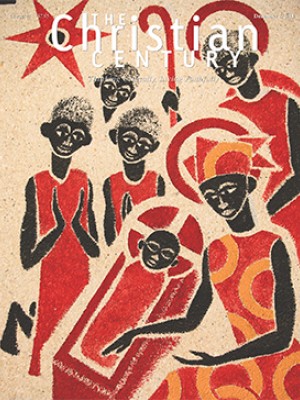
It started with our own curiosity. Every year at my church, St. Martin-in-the-Fields in central London, we have a fall lecture series. A parade of speakers, panels, and dialogues explores what we take to be the most pressing issues of our time. For the last few years, with series themes such as “Who is my neighbor?” and “Reformation,” we’ve felt the need to include a Muslim perspective. The great thing about inviting a speaker from a different social location is that it can draw in people who share that identity, and so we started to find a number of Muslims coming not just to the lectures given by a Muslim but to the other lectures as well.
And so it was that an invitation came for me to return the favor. A mosque in South London asked me to come and speak. We had decided our fall series theme for this year would be “Encounter,” and we had asked the usual pageant of distinguished speakers to come to St. Martin’s. But this year there was also something different: an opportunity to go to a mosque together and not just talk about an encounter but actually have one.
Read our latest issue or browse back issues.
I visited ahead of time to get a feel for what we’d be doing and saying. I said to my colleague and companion, “What on earth is that?”
“It’s the mosque,” he replied.
“But it’s huge,” I gasped.
“Oh yes, it’s the largest mosque in Western Europe. They get 14,000 people here for Eid and several thousand every Friday.”
I started learning a lot very quickly. It’s part of the Ahmadiyya community, founded in India in 1889 by Mirza Ghulam Ahmad. He regarded himself as the Messiah (or reformer) expected in the latter days by all major religions. Understandably this claim didn’t go down well in mainstream Islam, and the Ahmadis have been widely regarded as heretics ever since, sometimes resulting in persecution.
Yet the mosque was an oasis of calm. Above the main door was a welcoming slogan: “Love for all, hatred for none.” We were shown the enormous indoor athletics hall, suitably marked out with basketball courts—and currently adorned with sleeping bags belonging to a youth group visiting from Morocco. I met the imam with whom I was due to be in dialogue and said, “Well, what would you like me to talk about?”
He paused, augustly stroked his impressive beard, and responded, “The humanity and divinity of Jesus Christ.” I was silenced. I’d assumed we’d be talking about justice in the developing world or restoring values to secular society—the neutral meeting ground of many an interfaith panel. But no—he and his community wanted to know how Jesus can be both a human being and God, how Christians can say they believe in one God and yet speak of the Trinity, how the eternal God can die, and why Jesus is unique and not just a great prophet.
“How about you?” I inquired.
“I think,” said the imam, “I shall speak of the unity of God.” OK, I thought. No service projects, then. The real deal.
When I got back to my desk I found an anonymous letter from a person furious with me for consorting with infidels and being yoked to unbelievers. I thought, You have no idea. Paul on the Areopagus didn’t get to have as much fun as this. And I set about composing an address that covered all this territory in 25 minutes.
When the event came round, my address was not the highlight of the evening. The sports hall was transformed into a ballroom. Perhaps 200 of the regular lecture attenders made their way out from central London, and as many of the Ahmadi community joined them, although the Ahmadi women remained behind a curtain, watching the dialogue on a TV screen. After the addresses and questions, around 50 black-clothed young men appeared at our tables and began to serve us an outstanding three-course dinner, with a tasty fish course, a choice of curries, and a delicious dessert.
Over dinner the conversation inevitably fell to comparing our two organizations. I said to the president of the community, “I guess we have about 200 paid staff at our place, once you take in our commercial operations and the homeless center and the music team as well as the congregational ministry. How about you? This is a massive operation—how many members of staff do you have?”
“Six.”
I choked on my carrot halwa. “Seriously?” I said. “Six staff to run all of this?”
“Yes,” said the president. “All the rest of us are volunteers. These guys serving the tables have all come straight from work. And there’ve been a dozen volunteers cooking this dinner since this morning.”
Everyone who came from St. Martin’s was dazzled by the generosity, the living example of hospitality, kindness, and disarming humility. But I was worried. I now had a problem. On the way home I fervidly pondered how we were ever going to return this generosity. How would anything we could offer at St. Martin’s not seem mean and inadequate compared to what we’d received?
We thought we were being magnanimous. Our critics implied we were supping with the devil. Turned out we were overwhelmed by grace. We now have a problem, one made in heaven: returning the kindness of too many friends.
A version of this article appears in the print edition under the title “A dinner at the mosque.”







